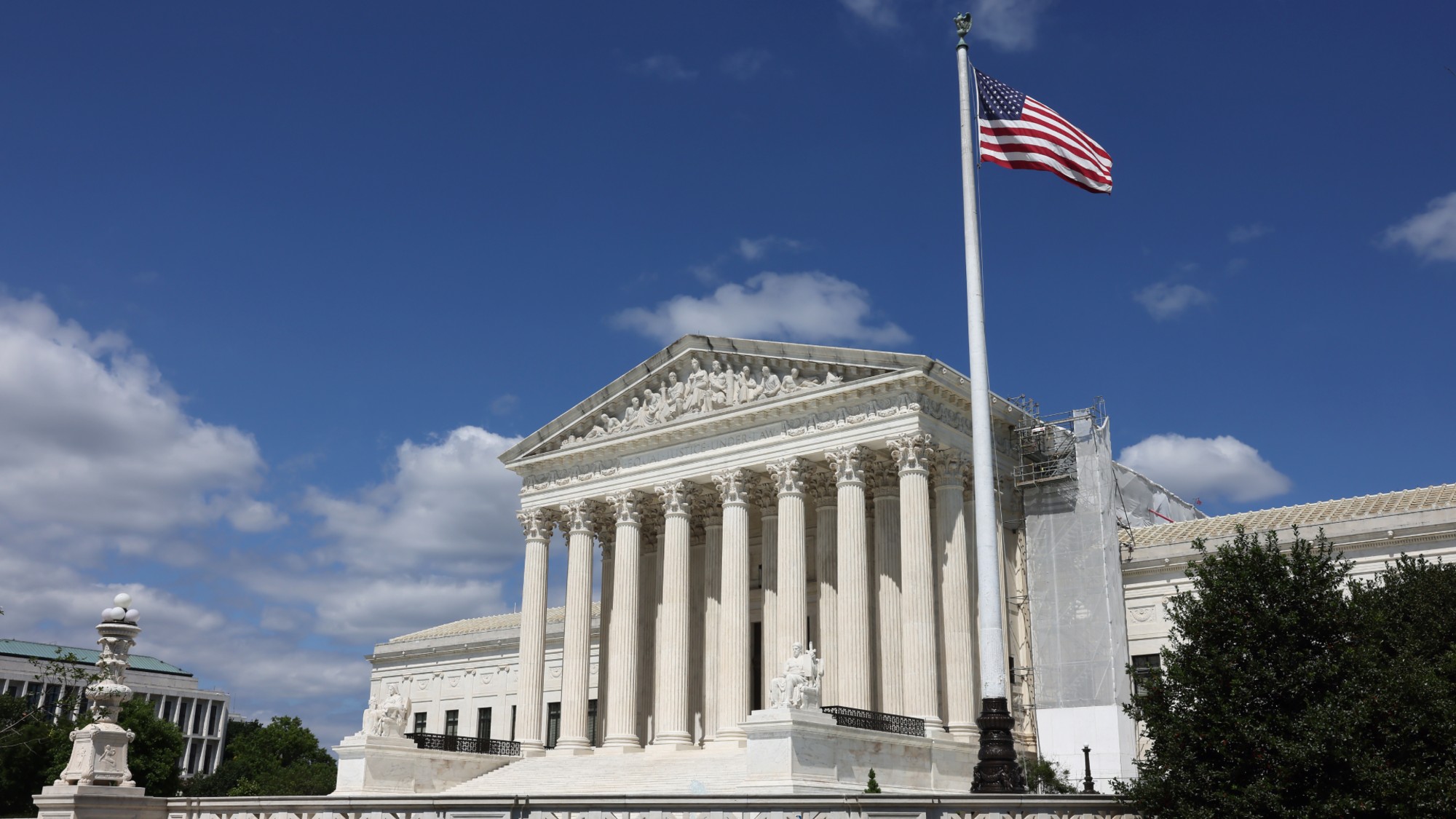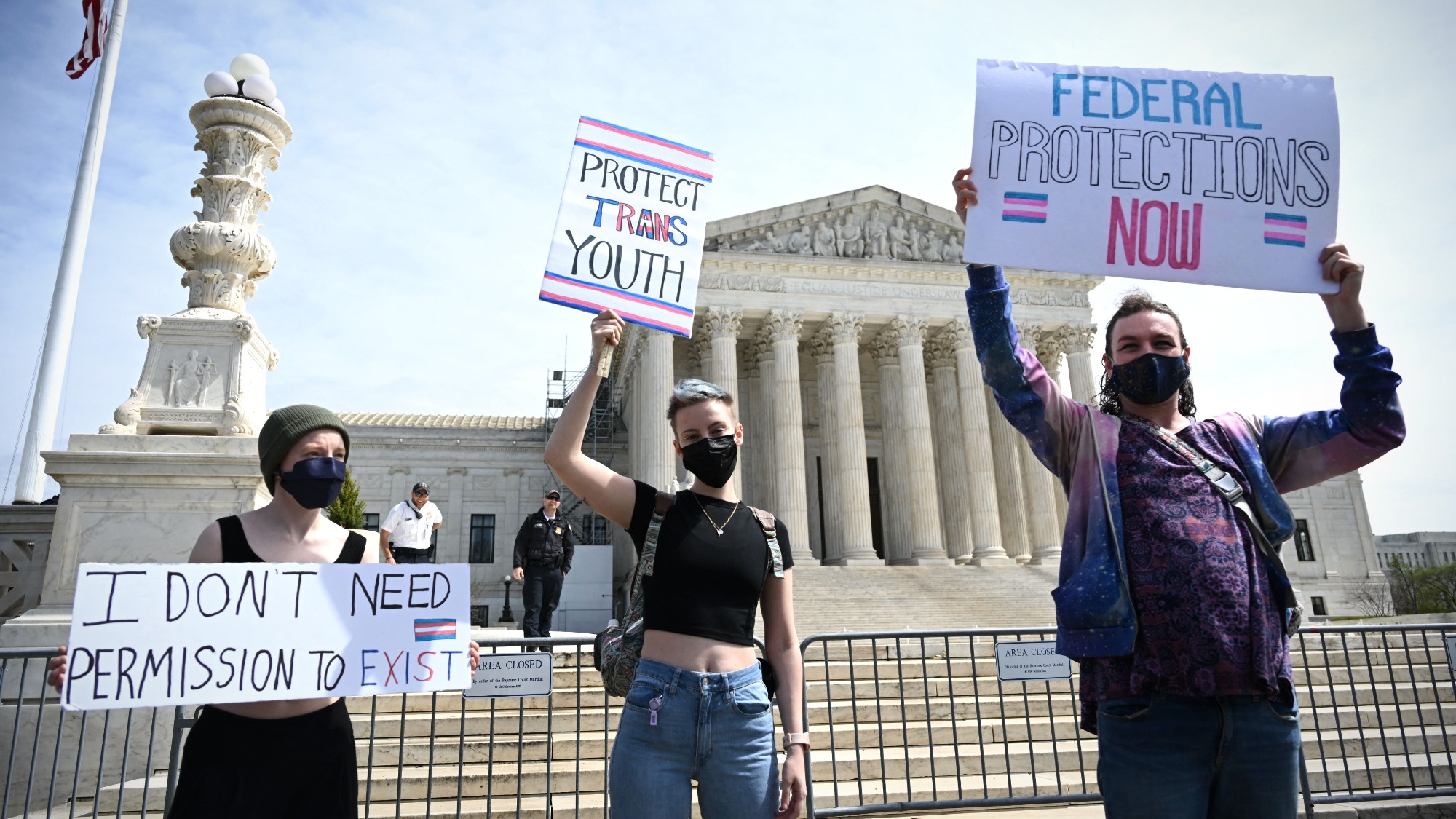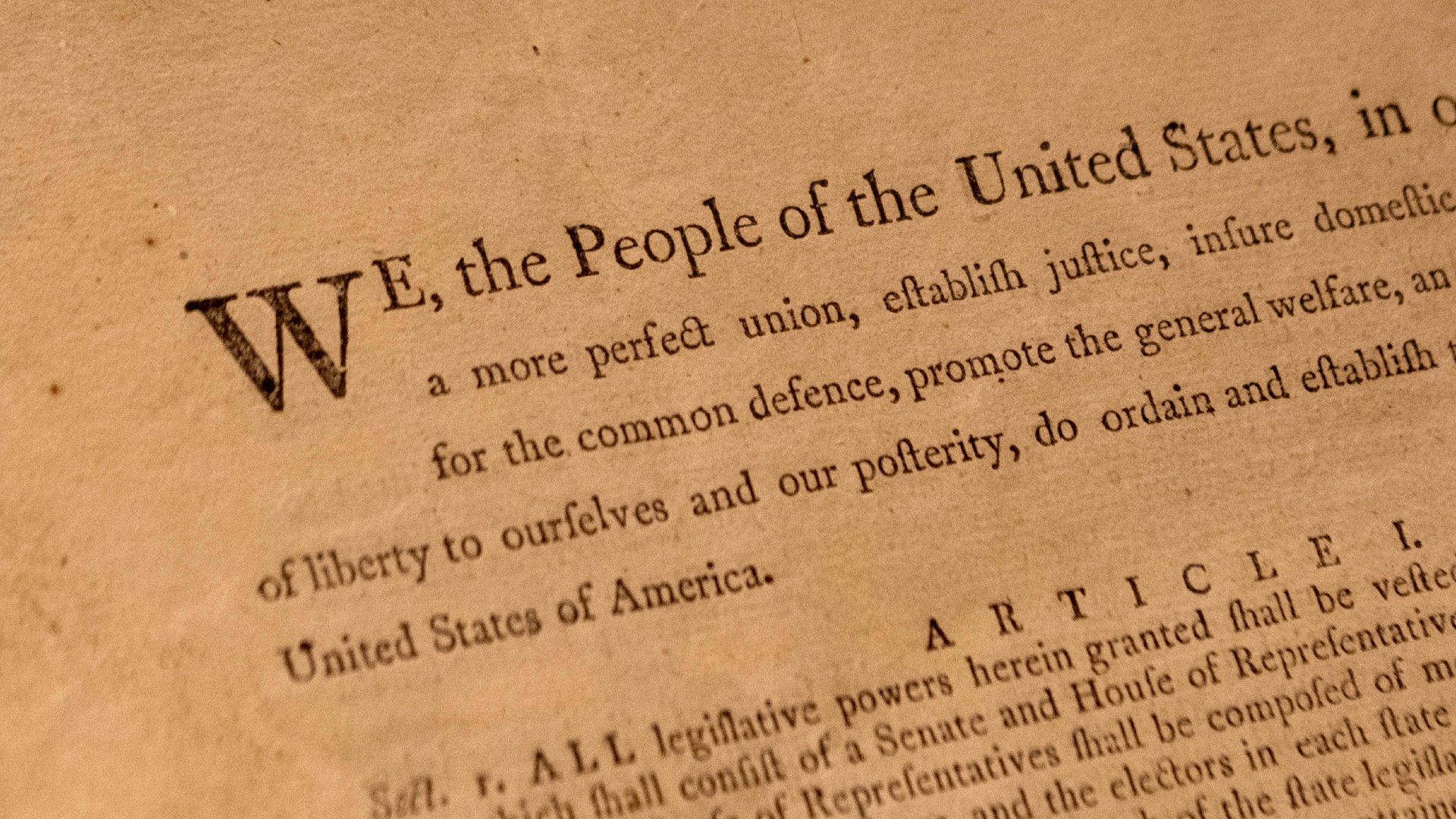Woman at centre of Roe v. Wade abortion case took bribe to switch sides
Pro-life groups allegedly paid Norma McCorvey at least $450,000 to defect following ruling

A free daily email with the biggest news stories of the day – and the best features from TheWeek.com
You are now subscribed
Your newsletter sign-up was successful
A woman who played a central part in the historic Roe v. Wade US court case confessed on her deathbed that she was paid to speak out against abortion in later life, a new documentary reveals.
Norma McCorvey - who used the pseudonym “Jane Roe” as the plaintiff in the landmark 1973 case - triggered widespread shock in the 1990s when she disavowed her role in legalising abortion and became a vocal pro-life campaigner.
But in a “deathbed confession” filmed shortly before her death, McCorvey revealed she accepted a series of payments - totalling at least $450,000 (£370,000) - from ultra-evangelical Christian groups to become an anti-abortion activist, The Times reports.
The Week
Escape your echo chamber. Get the facts behind the news, plus analysis from multiple perspectives.

Sign up for The Week's Free Newsletters
From our morning news briefing to a weekly Good News Newsletter, get the best of The Week delivered directly to your inbox.
From our morning news briefing to a weekly Good News Newsletter, get the best of The Week delivered directly to your inbox.
“I was the big fish... I took their money and they’d put me out in front of the cameras and tell me what to say,” McCorvey told the makers of AKA Jane Doe. “It was all an act.”
An anti-abortion group that McCorvey claimed made the payments, Operation Rescue, has denied the claims, reports The Independent. “There is no way her Christian faith or her pro-life beliefs were false,” the organisation’s president Troy Newman said in a statement.
The new documentary chronicles McCorvey’s life from her “troubled, impoverished youth as a sexual abuse survivor” and her marriage at the age of 16, according to the BBC.
McCorvey was in her mid-20s and pregnant with her third child when she was referred to two lawyers, Sarah Weddington and Linda Coffee, who “were on the hunt for a plaintiff to help to overturn Texas’s strict laws, which permitted abortions only to save the mother’s life”, adds The Times. McCorvey “fitted the bill”.
A free daily email with the biggest news stories of the day – and the best features from TheWeek.com
Henry Wade was the Texas attorney general who defended the anti-abortion law.
–––––––––––––––––––––––––––––––For a round-up of the most important stories from around the world - and a concise, refreshing and balanced take on the week’s news agenda - try The Week magazine. Start your trial subscription today –––––––––––––––––––––––––––––––
The case was taken to the Supreme Court, where justices ruled 7-2 that a woman’s right to terminate her pregnancy came under the freedom of personal choice in family matters, as protected by the US Constitution - a ruling that effectively legalised the procedure across the nation.
However, McCorvey - who died of heart failure in 2017 at the age of 69 - had long since had her baby and given it up for adoption by the time the court delivered its judgment.
AKA Jane Doe premieres at 9pm on Friday on FX, and is available on Hulu from Saturday.
Sorcha Bradley is a writer at The Week and a regular on “The Week Unwrapped” podcast. She worked at The Week magazine for a year and a half before taking up her current role with the digital team, where she mostly covers UK current affairs and politics. Before joining The Week, Sorcha worked at slow-news start-up Tortoise Media. She has also written for Sky News, The Sunday Times, the London Evening Standard and Grazia magazine, among other publications. She has a master’s in newspaper journalism from City, University of London, where she specialised in political journalism.
-
 How far does religious freedom go in prison? The Supreme Court will decide.
How far does religious freedom go in prison? The Supreme Court will decide.The Explainer The plaintiff was allegedly forced to cut his hair, which he kept long for religious reasons
-
 The Supreme Court case that could forge a new path to sue the FBI
The Supreme Court case that could forge a new path to sue the FBIThe Explainer The case arose after the FBI admitted to raiding the wrong house in 2017
-
 Supreme Court to weigh transgender care limits
Supreme Court to weigh transgender care limitsSpeed Read The case challenges a Tennessee law restricting care for trans minors
-
 Supreme Court wary of state social media regulations
Supreme Court wary of state social media regulationsSpeed Read A majority of justices appeared skeptical that Texas and Florida were lawfully protecting the free speech rights of users
-
 The pros and cons of a written constitution
The pros and cons of a written constitutionPros and Cons Clarity no substitute for flexibility, say defenders of Britain's unwritten rulebook
-
 Judges allowed to use ChatGPT to write legal rulings
Judges allowed to use ChatGPT to write legal rulingsSpeed Read New guidance says AI useful for summarising text but must not be used to conduct research or legal analysis
-
 Pros and cons of the Rwanda deportation policy
Pros and cons of the Rwanda deportation policyPros and Cons Supporters claim it acts as a deterrent but others say it is illegal and not value for money
-
 Is the Comstock Act back from the dead?
Is the Comstock Act back from the dead?Speed Read How a 19th-century law may end access to the abortion pill


